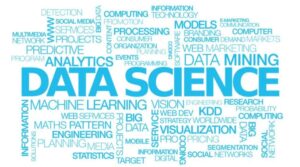Data science has emerged as a highly sought-after career path in recent years, and for good reason. With the rapid growth of data collection, storage, and analysis technologies, there is an abundance of valuable insights to be extracted from data. This makes data science a critical component of any successful business strategy. As a result, organizations across all industries are increasingly investing in data-driven approaches, leading to a growing demand for skilled data professionals.
However, the constantly evolving landscape of data science can be overwhelming for those pursuing a career in this field. With new tools, techniques, and trends emerging at a rapid pace, it can be challenging to keep up and navigate the path toward success.
In this guide, we will explore the fundamentals of data science careers and provide valuable insights to help you navigate the thriving landscape of this field. From understanding key skills and roles in data science to tips for building a successful career, this guide aims to equip you with the knowledge and resources necessary to thrive in the world of data-driven success.
Understanding Data Science
Before delving into the specifics of a data science career, it is important to have a clear understanding of what data science entails. Data science is a captivating discipline that melds mathematics, statistics, computer science, and domain expertise. Its purpose is to unlock knowledge and extract valuable insights from data.
Data scientists use a variety of tools and techniques, such as statistical analysis, machine learning, and data visualization, to make sense of large amounts of complex data. Their ultimate goal is to uncover valuable insights that can inform decision-making and drive business growth.
Key Skills for Data Science Careers
To excel in a data science career, certain key skills are essential. These skills not only help you effectively analyze and interpret data, but also make you a valuable asset to any organization. Some of the most important skills for data science careers include:
- Programming Skills: Proficiency in programming languages, such as Python, R, and SQL, is crucial for data scientists. These languages are commonly used for data manipulation and analysis.
- Statistics and Mathematics: A strong foundation in statistics and mathematics is necessary to understand the principles behind data analysis techniques and make accurate interpretations of results.
- Machine Learning Techniques: Machine learning, a subset of artificial intelligence, is used to extract insights from data and make predictions. Knowing machine learning algorithms and techniques is highly valuable in the field of data science.
- Data Visualization: The ability to effectively communicate complex data through visualizations is essential for data scientists. This skill helps stakeholders understand key insights and make informed decisions.
- Business Acumen: Understanding the business context and objectives behind data analysis is crucial for data scientists. This allows them to identify relevant data and provide actionable insights that align with organizational goals.

Roles in Data Science
The term “data scientist” is often used as an umbrella term for various roles within the field of data science. However, there are distinct roles that require different skill sets and responsibilities. There are several prevalent positions within the field of data science:
- Data Analyst: These professionals are responsible for collecting, organizing, and analyzing large datasets to identify patterns and trends and provide insights.
- Data Engineer: Data engineers design and develop the infrastructure necessary for data storage, processing, and analysis.
- Machine Learning Engineer: Machine learning engineers apply machine learning techniques to build predictive models that can be used for decision-making.
- Data Scientist: Data scientists have a combination of skills from data analysis, machine learning, and business acumen to collect, analyze, and interpret data to solve complex problems.
Key Insights for Cultivating a Flourishing Data Science Career
Now that you have an understanding of the fundamentals of data science careers, here are some tips to help you navigate the path towards success:
- Continuously Learn and Stay Updated: With new tools, techniques, and trends emerging constantly, it is important to stay updated and continuously improve your skills through online courses, workshops, and networking events.
- Gain Practical Experience: Hands-on experience with real-world datasets is crucial for building a successful data science career. Participate in hackathons, internships, or personal projects to gain practical experience and showcase your skills.
- Develop a Diverse Skill Set: In addition to technical skills, knowing business processes, communication skills, and project management can make you a well-rounded data professional.
- Network and Collaborate: Building connections with other data professionals can help you stay informed about job opportunities, learn from others’ experiences, and collaborate on projects to expand your skill set.
- Seek Mentorship: Finding a mentor who has experience in the field of data science can provide valuable guidance and support as you navigate your career path.
In conclusion, a career in data science offers endless opportunities for growth and impact. By continuously learning and developing key skills, understanding different roles in the field, and building a strong network, you can pave your way towards a successful data science career. So don’t be intimidated by the constantly evolving nature of this field – embrace it and use it to your advantage as you embark on this exciting journey. Keep exploring, keep learning, and enjoy the ride toward becoming a successful data scientist!
To read more articles visit Go News Time
